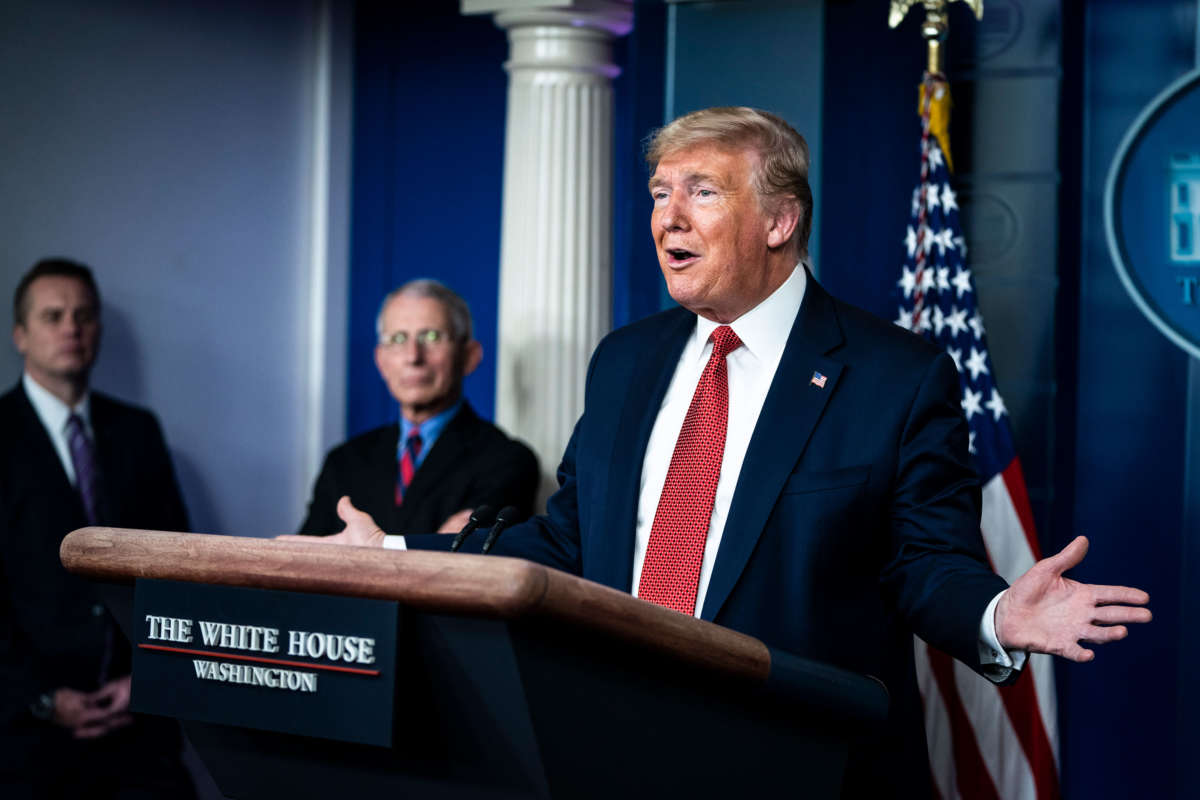A drug that President Donald Trump frequently promoted for use in the treatment for COVID-19 (at one point calling it a “game-changer”) is getting renewed scrutiny after a study found that there was “no evidence” to suggest its application did any good for patients.
The study, in fact, found that those who were treated with hydroxychloroquine, an anti-malarial drug that some have said showed promise for the treatment of COVID-19 due to anecdotal observations, actually had a higher outcome of death than those who were not treated with the drug.
The outcomes for 368 patients at VA hospitals across the country were observed by the study’s authors. They found that 28 percent of patients who were given hydroxychloroquine ended up dying, versus just 11 percent of patients who were treated with standard care for COVID-19 who died.
The study also observed the use of the drug in combination with azithromycin, and found that 22 percent of those who received both drugs (another treatment that some have said works anecdotally) also died, but there were limitations in the number of patients observed to draw a conclusion on outcomes in this case compared to those who were not treated with either drug.
The findings of the study were released on Tuesday. Later that day, reporters asked Trump what his views on the study were, and whether he and the coronavirus task force team had talked about its conclusions.
“No, we didn’t discuss it, and I don’t know of the report,” Trump said, minutes after another member of the task force had answered questions about it.
The president also expressed doubts about whether the study was worth taking seriously or not.
“Obviously, there have been some very good reports and perhaps this one is not a good report,” he said. “But we’ll be looking at it.”
Earlier in the month, Trump had pushed the drug as safe enough for people to take even if it wasn’t yet proven to be effective in treating coronavirus.
“I’m seeing people dying without it…. When that’s happening, they should do it. What really do we have to lose?” Trump said on April 5.
Trump says some remarkably irresponsible stuff about hydroxychloroquin: "What do you have to lose? Take it. I really think they should take it … try it, if you'd like." pic.twitter.com/ULjKRfqEG5
— Aaron Rupar (@atrupar) April 4, 2020
During much of March and early April, Trump and right-wing media had heavily pushed hydroxychloroquine’s use for combating the disease. But since the emergence of other studies suggesting that the drug wasn’t as safe as the president led people to believe it was, organizations like Fox News suddenly stopped talking about it. According to observations from Media Matters, that network’s mention of the drug has diminished by 77 percent since late March.
Trump’s consistent touting of the drug even resulted in large purchases of it by the federal government, which bought 29 million pills of hydroxychloroquine. It’s possible that the money spent on those pills could have instead been used to help fund programs for Americans who are struggling financially, or for small businesses seeking loans to help them stay afloat.
Hydroxychloroquine is also used to help people suffering from rheumatoid arthritis and lupus, but the promotion of the drug as a possible “game-changer” by Trump has led to a shortage of the drug for those individuals who rely on it.
Join us in defending the truth before it’s too late
The future of independent journalism is uncertain, and the consequences of losing it are too grave to ignore. To ensure Truthout remains safe, strong, and free, we need to raise $46,000 in the next 7 days. Every dollar raised goes directly toward the costs of producing news you can trust.
Please give what you can — because by supporting us with a tax-deductible donation, you’re not just preserving a source of news, you’re helping to safeguard what’s left of our democracy.
